
Message from April 12, 2015.
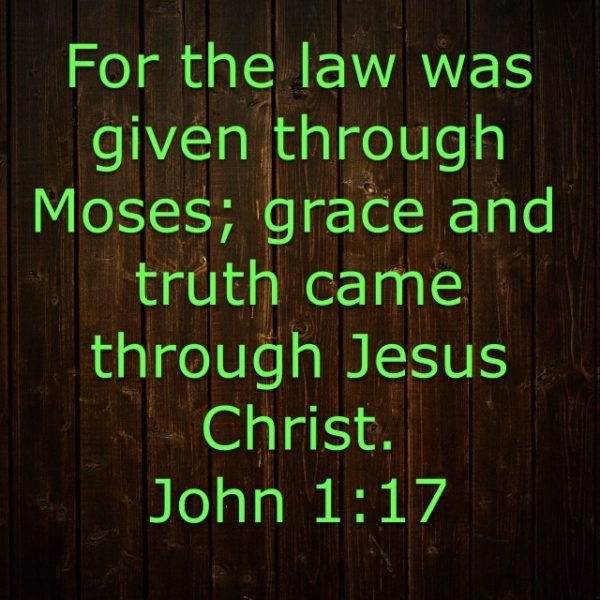
Message from April 19, 2015.

Message from April 26, 2015.

Message from May 3, 2015.

Message from May 10, 2015.
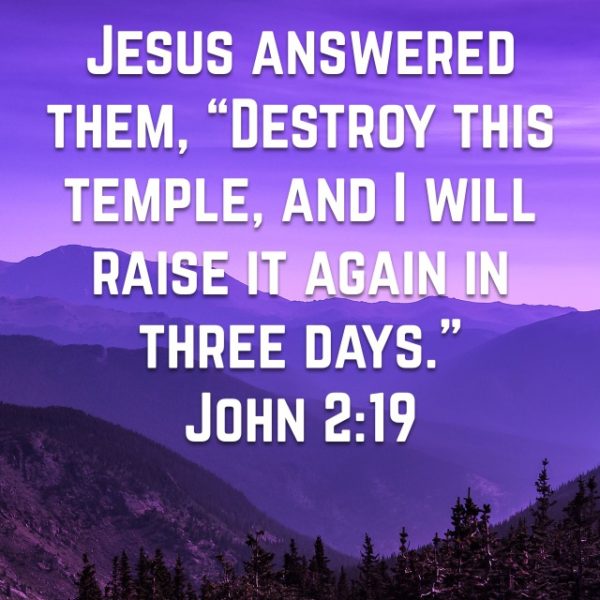
Message from May 17, 2015.
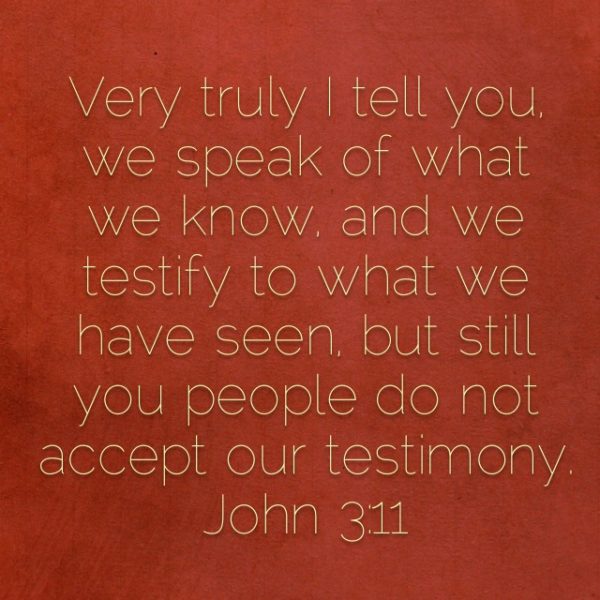
Message from May 24, 2015.

Message from June 7, 2015.

Message from June 14, 2105.

Message from June 21, 2105.

Message from June 28, 2015.
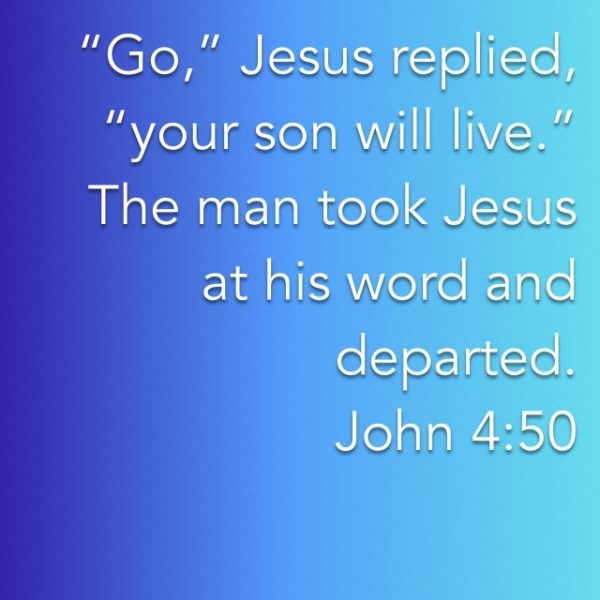
Message from July 5, 2015.

Message from July 19, 2015.
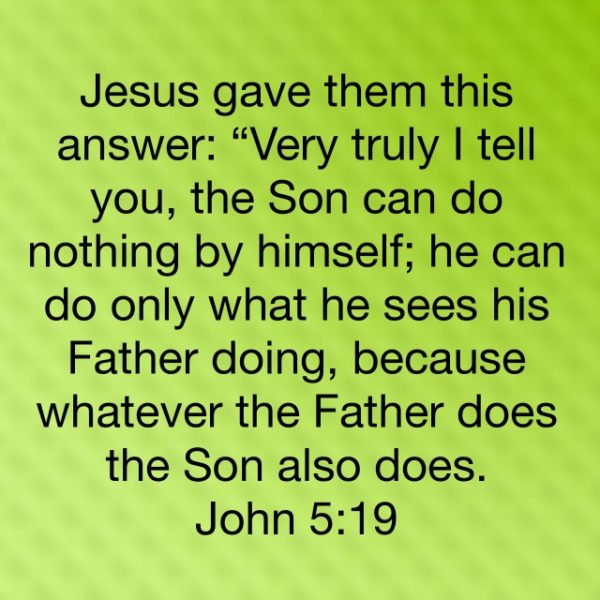
Message from July 26, 2105.
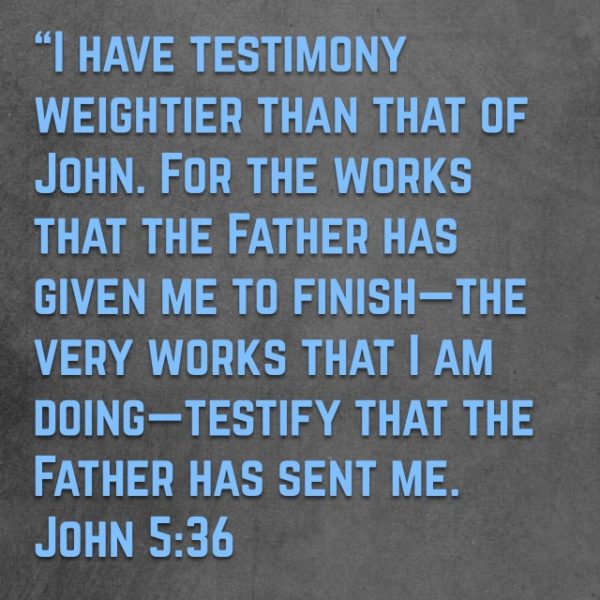
Message from August 2, 2015.
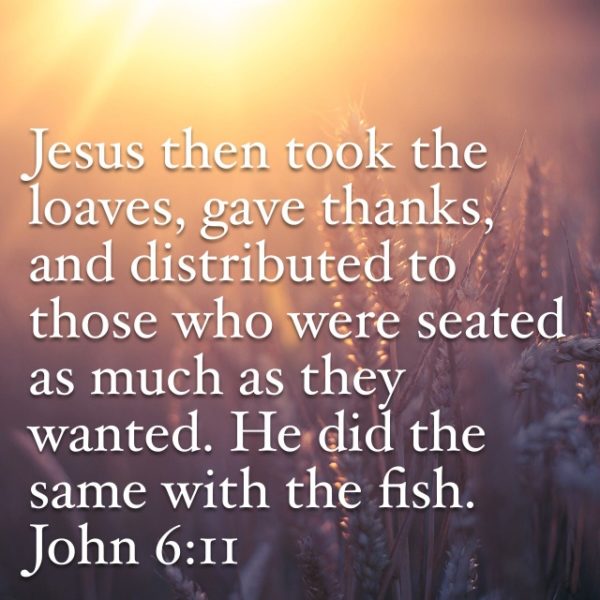
Message from August 9, 2015.

Message from August 16, 2015.

Message from August 23, 2015.
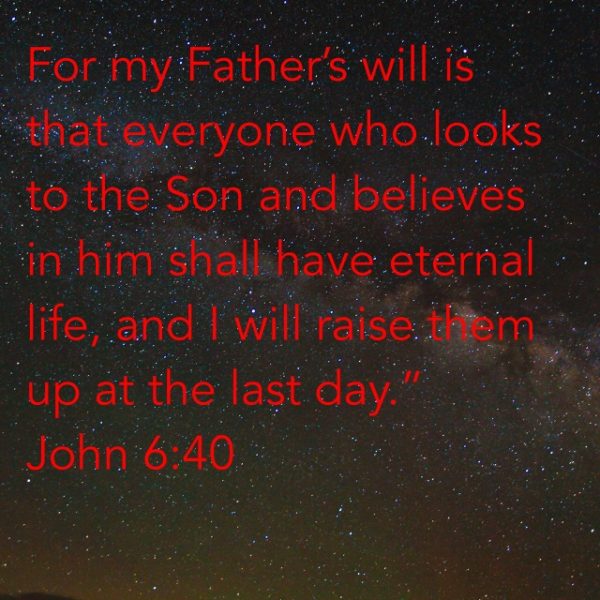
Message from August 30, 2015.
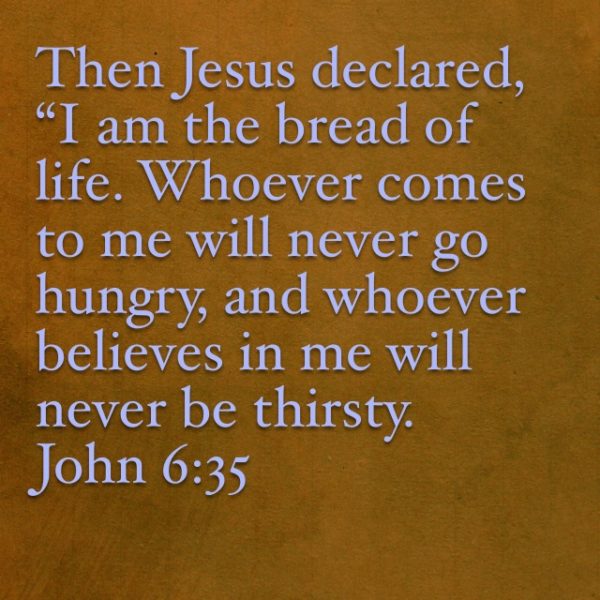
Message from September 6, 2015.

Message from September 13, 2015.

Message from September 20, 2015.
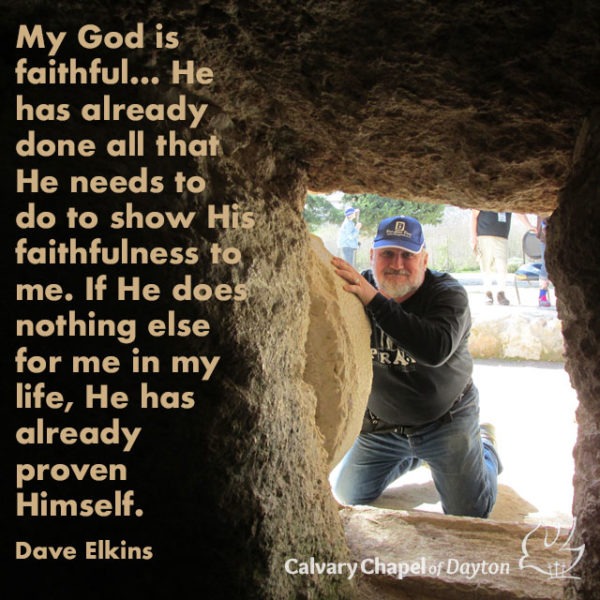
Message from September 27, 2015.
Okay, if you would, please, open your Bibles to John Chapter Seven. John Chapter Seven starts off with this: it says, “After this, Jesus went around in Galilee, purposely staying away from Judea because the Jews there were waiting to take His life.” We just finished up this amazing teaching that Jesus gave in the synagogue in Capernaum – spent seven weeks in Chapter Six because there was just so much that Jesus had to tell us through Chapter Six.
John – when he wrote his book, the Holy Spirit put it on his heart to give information that led up to that teaching in Chapter Six. Once we get to Chapter Six, then John takes some time from the ministry of Jesus. So he’s going to jump ahead, and as I was studying, I guess the best that I could tell you is if you jumped into Matthew, Chapter 17 is where you would find this point in Jesus’ ministry in John, where John is describing.
So John just puts it like this: “After this-” – after Jesus finished with this teaching. And why was it significant that Jesus gave this teaching? Because this teaching was the pivotal point in His ministry. Jesus had come on like a rock star to the Jews. The Jews loved Him. Why did the Jews love Him? One, He was healing people. Two, He was feeding them. He fed the 5,000, He fed the 4,000, and so many more than those thousands. He was always blessing people, and He was always kind to people. The only people who did not seem to care for Him was the religious Jews, the religious leaders. Those who were devout in their faith did not like what Jesus was teaching, because what Jesus was teaching was God’s love, not the law of the Jews. And understand, I am making a distinction between the law of the Jews and what God gave us. God, when He gave the law, every one of the laws He gave were laid in a foundation of love. Though He gives the Ten Commandments and He says, “Thou shalt not,” He says “Thou shalt not,” because He wanted men to know how to interact with their neighbor. He wanted men to be able to share with and care for his neighbor, to show a level of love, so much so that the two great commandments that Jesus teaches us in the New Testament actually didn’t come from Jesus in the New Testament. They are verses right out of the Old Testament when God gave the Law. As God gave the Law, He told the Jews, “Love your neighbor,” and “Love the Lord your God.”
The Jews had begun to surround Jesus, so much so that as I mentioned in Chapter Six, there’s this group of Jews that were seeking their Messiah. They were looking for that one candidate that fit the bill: a son of David – has to be in the bloodline of David. They have figured out that even though Jesus has this questionable past – and the religious leaders, the Pharisees, are going to continue to bring up the fact that they have doubts about Jesus’ heritage. They don’t want Jesus as their king, because they think that Mary fooled around and got pregnant before she married Joseph. They all know the timetable. They know how things happen, and they know that Mary was pregnant before she married Joseph. In their wildest imagination, they could not conceive of the idea that God might intervene, that God may have put a child in a woman’s womb, even though she was a virgin. So her story has been held in reserve until this time that Jesus is now in His ministry. And they have brought it up once; they will bring it up again. The other Gospels, it becomes a point of discussion about His heritage.
Jesus doesn’t have to defend Himself, and this is what I love about Jesus. Jesus does not defend Himself on the point. He just says, “My Father is in Heaven. That’s where I came from. You know, you guys can accuse all you want, but look at the things I’m doing. Listen to what I’m saying. But more than listen to what I’m saying, look at what I’m doing.” And when they looked at what He was doing – and part of what we’re going to deal with in Chapter Seven, an issue that’s going to come up is, we’ve just mentioned this, because the Jews were waiting to kill Him in Judea, in Jerusalem. They were looking for an opportunity to take His life, so Jesus was staying away from that region. And they wanted to take His life because of what happened in Chapter Five.
What happened in Chapter Five? Who remembers? Gosh, you guys aren’t listening very well, are you? Okay, well I’ll tell you. What happened back in Chapter Five? Jesus goes to the pool of Bethsaida – no, Siloam or Bethsaida? There’s two pools there. Just couldn’t get the right one out. He went to the pool of Bethsaida, and He heals a man who had been crippled for years. And no one would help him. And do you remember why they wouldn’t help him? One, it was the Sabbath. And two, because he became that way because of his sin.
They knew the man was a sinner. What did Jesus tell him after he healed him? He goes, and he finds him, and he says, “Don’t sin anymore, otherwise something worse will happen to you.” It wasn’t a mystery to Jesus why he was in that condition. So his ailment, his inability to walk, was directly related to his sin. And the religious Jews loved holding him up as the example of why you don’t want to sin. Because guess what? You’re going to suffer for it. And what did Jesus do? He came along and took away their great example of why people should not sin. Even though He was there at the pool, and there were lots of people at the pool, and I’m sure many of them were there because of their sin. Jesus looked at this one man and understood the condition and knew his heart, and so Jesus went to him and healed him. How dare He heal him? And then, to add insult to injury, it was the Sabbath. The man picked up his mat because Jesus told him, “Pick up your mat and go home. You can walk now. You’re healed. I’ve made you better.” So the man did what he was told. And the religious leaders asked him, “Why are you carrying your mat on the Sabbath?”
This became a problem for the Jews. They did not like the fact that Jesus was not obeying their law. Did God ever say that men could not pick up a mat and walk on the Sabbath? No. God said you’re not allowed to work on the Sabbath. He wanted you to respect Him and respect the Sabbath as being holy. Don’t go out and do any regular work on the Sabbath.
But He made provision within the Old Testament, when you look at the bylaws He lays out. When Moses is hearing the bylaws and he is writing them out through Leviticus and Deuteronomy, you hear God’s heart in trying to deal with the people. He knew they would become legalistic, so He said that if a man’s hungry, he can go into the field, and he can pick grain. And that’s not work. It’s not work to feed yourself. If God has provided grain in a field, and that grain is ripe, and you’re hungry, go and eat it, even on the Sabbath. Remember, Jesus does this in one of the other Gospels. He and His disciples go through the grain field, and they’re simply taking the heads of grain, rubbing it off in their hand, and eating it, and the Jews complain that they were working on the Sabbath. This was a law of the Jews. The Jews had taken God’s Law, and instead of seeing it as an opportunity to love, they saw it as an opportunity to control.
See, this is a problem for us. As humans – as people who have grown up in a life without God – we don’t look for opportunities to love. We look for opportunities to control. We want to control our own lives, we want to control our environment, and we want to control the lives of those that are around us. And sometimes we’re very clever about how we go about it. We’re very subtle about how we go about it. But as long as we get our way, we’re happy. And so our lives represent trying to control.
Now, if you endeavor to love, understand something: there’s a danger in loving people. Because if you love, if you truly show love, love can only happen – and I’ve mentioned this before, too – how does love happen? When there’s choice. Choice is the engine that makes love work. If there is no choice, there is no love. I can’t come to you and force you to love me. Because then it’s not love; it’s compulsion. Love is a response to a choice given to you. How you respond to me is completely and totally up to you. How you respond to God is completely and totally up to you. God is not going to make you do anything. I will not make you do anything. We cannot, if we truly want people to love us, make them love us. So the only way we can accomplish this is by giving them the choice to love us.
And that’s the danger. If I leave it up to you, you might not love me. If I leave it up to you, you may choose to try to control me. So now, I really have to think through what I’m doing and saying, because you know what? I’m not only giving up control to love you; I am giving up even more control and allowing you to control me.
This is how it starts. This is what Jesus was dealing with in the hearts of men. The Pharisees did not like this. The religious leaders did not like the fact that Jesus came and He stepped on their law. They wanted to control. Jesus wanted to heal. Jesus wanted to love. Jesus wanted to free people to love God. To love God the way He wanted to be loved. He didn’t give the law to bind people; He gave the Law to free people. But He knew that the Law was exacting.
You know, this is the one thing – that the Law cannot forgive you. Let me tell you something: the law was not given to us to offer forgiveness. Love offers forgiveness. The Law points out where you’re wrong. The Law is given so that we know the difference between right and wrong. God gave the Law so that the people would know right from wrong, and then He incorporated into that law – right and wrong – the understanding that He had love for them. He would forgive them, and that is what the sacrifice was for. He built in an understanding of His love and forgiveness for them, but they even found a way to take that sacrifice and legalize it and pervert it and distort it and take advantage of those as they came into Jerusalem.
And see, this is also – Jesus started off really bad in His ministry, because the first thing He did is He goes to Jerusalem, and goes to the Temple – instead of going into Jerusalem and going to Herod and kicking Herod out of the palace and taking the palace for His own, He went to the Temple, and He overturned the tables of those who were in control of the Temple and chased them out. You see where His heart is? It’s not about control. He says, “It is about drawing close to my Father. My Father’s house will be a house of prayer. My Father’s house will be a house where people can come and freely interact with my Father. And you’re going to stop taking their sacrifices and perverting them.”
This is what we’ve seen as we’ve come through John to John Chapter Seven. John mostly writes about the last few months of Jesus’ ministry. That’s what the book of John is about: those last few months. He’s going to give us an in-depth, intense teaching on the life of Jesus coming to the end of his life, showing us through his writing how much Jesus truly loved us. But he lays the foundation through Chapter Six to show us that first He came into Jerusalem, and He established a foundation that He was working from, and that foundation irritated the Jews.
And then we get to Chapter Six, and what does He tell them? “Eat My body. Drink My blood.” Because in the end, that’s what it comes down to: you are going to have to partake of Me if you want salvation. Salvation doesn’t come through your law. Salvation doesn’t come through your control. Salvation doesn’t come to you because you demand it. You are not controlling Me. You are not controlling God. You are not going to control His sacrifice anymore. Let me tell you something: if there’s any control, that control is in Me. Because if you want salvation – and He is very blunt and very direct about it – you must eat My body and drink My blood. That’s where your eternal life comes from. No other way.
And this rock star – this man that everybody was putting up on a pedestal – all of the sudden stops in their tracks, dead in their tracks, and, “Wait! He’s talking about cannibalism now!” They missed the point completely. As I’ve taught before, they had customs that explained what He was teaching. In how they would interact with each other and how they became one with each other. And when they gathered around the table, they would enter into fellowship, and they would accept one another and be a part of one another’s lives and take one another into each other by simply dipping their bread into the same jar of sauce. Taking a piece of meat, drinking from the same cup, they became one with one another. And yet they missed what Jesus was saying. They only look at the legal aspects. They didn’t try to understand the spiritual aspects of what Jesus was teaching.
And so He lost most of those who were following Him. The crowds stopped. At that point, He had some that were following Him. He had the twelve that were following. He had the women that were associated with His ministry that followed. Those – He had a handful of women, including His mother, that worked outside the ministry to be able to help support the ministry. He had other people who were there with Him. But we’re talking about from thousandsto maybe a couple hundred people that were now interested in his ministry.
This is what John was laying a foundation for: bringing us to this point through Chapter Six to give us an understanding that Jesus was admired. Jesus was desired. But Jesus was not here to be controlled, and He was not here to be the king that they wanted. But if He is going to be the king – and listen to this very carefully – if Jesus is going to be your king, He must be king His way, not your way. If you are going to say, “Lord Jesus,” He must truly be your Lord. Are you using that term so that you can impress people, or are you using that term because you are genuinely, sincerely humbling your heart before this man who is God, who is now our king? Are you humbling yourself before Him and understanding that He has control? You no longer have control. When you say, “Lord Jesus, come into my life,” you are saying, “I am giving You the control; I am no longer in control. I want You to guide me. I want You to tell me how to live. I want You to tell me where to live, what to do. I want You to put Your love in me so that Your love overpowers me, overwhelms me, and stops me from doing the control, and then simply bowing in love to those that You bring my way.
This is where we’re at now in Chapter 7. “After this–” and I can’t tell you how many days, weeks, or months have gone by; maybe a year-and-a-half has gone by. If you knew every moment of Jesus’ ministry through all of the gospels, you could figure it out, but I’m not that clever. I don’t study to that depth. Sorry, guys. There’s others that may do that, but I’m just not that guy. But I can tell you, time has passed. Time has passed. And Jesus’ ministry has continued, and through the other gospels, He has told parables and He has interacted with people and He has healed people. It’s not like the next day: John doesn’t say, “The next day.” John is saying, “Now, after this–” after this great teaching with devastating results, Jesus hung around the Sea of Galilee because He knew He was being hunted by the Jews.
Verse 2: “But when the Jewish feast of Tabernacles was near, Jesus brothers said to Him, ‘You ought to leave here and go to Judea so that your disciples may see the miracles You do. No one who wants to become a public figure acts in secret. Since you are doing these things, show yourself to the world.’” And I love this. You know, this is all sound advice, right? It sounds really good, right? Until you hear, “For even His own brothers did not believe in Him.” So if they don’t believe in Him, why are they saying, “Go to Jerusalem. Show yourself”? Because they, too, like so many others, believe in the coming king. They want a king who will deal with Rome. They want a king who will put himself on the throne and take power and authority over the lives of the people in Israel. And – and – if I’m his brother, what does that make me? If my brother’s the king, guess what? It means I probably have a position of power and authority. They didn’t believe in Him. They didn’t believe He was the Messiah, the savior of their souls. They didn’t believe that He had come from God. Ah, I’m sure they probably heard the story. Mary had probably mentioned it in passing a time or two: uh, that, you know, your brother was born while I was still a virgin. “Yeah, Mom. Sure. Like, we know how that happens.” They don’t believe. And this is important. They are giving Him advice. They are pressing their advantage. That is all Jesus is to them: an advantage. And you know, I see so many people who are calling themselves believers, even today, that the only reason why they are using the name of Jesus is to press an advantage. They gain something from that. They gain respect, they gain position. They might gain a job. They gain friends. But see, Jesus isn’t here for anyone’s advantage.
And I love Jesus’ response. “Therefore, Jesus told them, ‘The right time for Me has not yet come.’” “You know, I know what I’m here for. I know why My Father put me here, and my time has not yet come. I don’t care what you guys say. I know you don’t believe me. I know you don’t care for me. Oh, by the way, I still remember the time you came and tried to have me put away.” See, that little guy is still hiding there in the background. They came to collect Him because they thought He was crazy. Because you remember, the people were pressing in so tightly around He and His disciples that His disciples couldn’t even eat. Now, Jesus didn’t have a need for food the way the disciples did. He knew His food was His Father’s word and His Father’s desire. He could work all day and not put a bite of food in His body, and He was sustained by the power and the authority that His Father gave Him. But His disciples, they needed a crust of bread now and again.
His brothers saw this. Other people saw this. And His brothers said, “The man is crazy,” and they went to collect Him, to have Him put away. Remember when Jesus says, “Who are My mother and brothers? I don’t recognize these people outside the door here. They’re not My mother and brothers. You guys are My family. You guys are who God has given me to minister to and to be with and to show love to. I know what those guys are here for. They’re here to put me in an institution. They’ve come with the paddy-wagon]. They’re going to put Me in the long-sleeved shirt that ties around My back.
They want to control Me. See, this is the bottom line: they were about control. And Jesus remembers this. Now, obviously, they never got the occasion to haul Him away. They have now changed their approach. So instead of having Him put away, what are they trying now to control Him? “Well, Brother, if You’re a public figure, if You’re going to be in government, you’ve got to go and show Yourself. And, you know, You’re doing some pretty wild things here; we like what we see. We’re backing You 100%. But You’ve got to show Yourself. You know, if You want to be king, You’ve got to go to Jerusalem and make Yourself king.” He’s already told us, He is not here to take that position. He has already side-stepped the Throne Committee. And now His brothers are trying to press their advantage by giving Him what seems like sound advice.
This is another thing I see quite often within Christianity. We go to great lengths to tell God how to run our lives. We tell God what He must do for us. We tell God how He must answer our prayers. We tell God, “Well, You know, God, my rent’s coming due, and I don’t have the money, so You have to give me the rent money.” Well, why does He have to give you the rent money? What if He doesn’t want you to pay your rent this month? What if He wants you to be put on the street, to show your faithfulness to a group of people who are also homeless: that you are going to stand firm, even having lost everything? What if He wants you to do that? Is that okay? Is it okay for Him to take your car away from you and make you walk? Is it okay for Him to say to you, “There is no dinner on the table tonight, but I have a group of people that I want you to meet that are also hungry. And I need your lips to be prepared to say, ‘Even though I’m hungry tonight, my God is faithful: not because He’s going to put food on the table, but because He died on the cross for me already. He has already done all that He needs to do to show His faithfulness to me. If He does nothing else for me in my life, He has already proven Himself. And so whether I die here on the street or He raises me up and puts me in a better place in this life, either way, I will praise Him.’”
What if He asks you to be the person dying in the hospital with Stage 4 cancer? To say to those coming to visit you, “It’s okay. You know what, God gave me this life, and now this is a part of that life that He has given me, and He has been faithful to me every step of the way. And when He takes that last breath from my lungs, I know He will be faithful to me to receive me into His love. Because that’s my God. That’s who I serve.”
It’s not about whether I have a house. It’s not about whether I have great things. It’s not about whether I’m healthy. You know, like I said earlier when I prayed, we so often think blessing is that He makes us healthy, blessing is that He gives us the home and the cars and the money. But that’s only a small part of the blessing. The bigger part of the blessing is that He died for you already, and He has given you the ability to know that. Regardless of what your circumstances are, He has offered you an eternity with Him. Alls you have to do is choose that. That’s up to you. He has already loved you, and He is saying now, “I’m not going to control you; I am offering you choice. You can love Me back. But understand something: your love for Me will often be challenged. I am not going to control you by always giving you everything you want.” Some people think that that’s the only way God can show us His love. You know, “He loves me because He gave me all these things.”
Well, what if He doesn’t give you those things? Does that mean He doesn’t love you? Do we come to that conclusion: that He has stopped loving us because He has not given us the things that we think we want? No. Eternity is still waiting for you. His love is going to greet you at that moment that you step from this life into eternity. His love is still faithful. His blood has still cleansed you. His flesh was broken for you. I don’t care what your hard time is. You know, I know that sounds callous, but it is not about your hard time; it is about how you are responding through your hard time. Are you saying, “I love Jesus, and He is my Lord and Savior.” If you love Him and He is your Lord and Savior, then it doesn’t matter what you’re going through at the moment. What matters is that you know that He is your Lord and Savior, and you love Him. And He will sustain you through it, even if that sustenance is eliminating this flesh and stepping into eternity. That’s His love, and that is the choice that He is giving to us.
And this is what His brothers did not understand. This is what the people did not understand. This is why the people fled from Him when He finally got to the point where he says, “I know what you want. You want Me to feed you. You want me to put food in your bellies. Well, you know what? That’s not what I’m about. I like being a part of you, and I like giving you some food now and again, but that’s not what I’m about. I am about eternity. I am about showing you the love of my Father that sent me here and what my Father truly desires, and He desires a love relationship with you. And that love relationship can only be had through Me, through your truly trusting Me, your truly giving your lives to Me, by drinking My blood and eating My flesh, by partaking of Who I am, how I live, even to the extent that you might have to sacrifice your very lives as I am laying down My life for you.”
We don’t often think that way, do we? We want to be His brothers. We like the idea of having this position in life: my brother, the King. I can’t tell you how many times I’ve witnessed to people and said, “My God is a King, and He sits on a throne, and I get to go be with Him.” But sometimes I forget to also say, “But that kingship sometimes requires for me to suffer. Sometimes that kingship requires for me to have to make decisions that doesn’t always seem good. You wouldn’t say it’s for my best, but God might.” It might be for my best that I get my head cut off, if it tells my captor of the love of Jesus and the depths that I’m willing to go to to show him that love. That might be the best. What if that is the very best that God is going to do with you, is in that moment of choice to give your life up for Him that you witness to someone. Your life, in giving it up, says to that someone, “I love God and I know He loves me, no matter what you’re going to do to me.” And then, after he takes your life, the Holy Spirit comes on him and says, “Now look at what you’ve done. And this man didn’t resent you for it. This woman didn’t spit in your face for it. They truly understood the Lordship that I offered them.” And then that man gives his life to the Lord.
What would that look like? A man who just cut off someone’s head – and, you know, we know this happened, because we know Paul. We know what Paul did with Stephen: stood there and held the coats as the Jews were stoning him to death. He had a knife in his hand cutting Stephen’s head off: in his heart, he was killing Stephen himself, because he gave the approval, and not only approval, but was glad about what was happening. But then the Holy Spirit was able to speak to him. “Did you see how Stephen went through that? Did you see how he honored Me through that? Did you see how he looked up to Heaven and said, ‘I see Jesus standing at the right hand of the Father. Wow! I don’t care about these stones anymore: man, look at that! That’s the relationship I’m going to. Go ahead, guys, finish the job. I can’t wait to get there!’” Can you see how that might have a great effect on someone’s heart?
We call ourselves brothers and sisters in the Lord. We call ourselves Jesus’ brothers and sisters. But are we really the brothers and sisters He desires, or are we His brothers that are saying to Him, “There’s an advantage here. You know, my Christianity can get me in a lot of doors. It can change people’s perceptions about me.” Even going to court, Phillip: don’t let Jesus be your advantage; let Him be your strength. Don’t worry about what any judge thinks or says. If you’ve sinned, you’ve sinned, and there’s consequences. And if we would just look at how God interacts with us and say, “You know, God, I blew it. Forgive me. I’m willing to accept the consequences, and if those consequences that I’m accepting now can be a testimony of your faithfulness to show others how I’m going to go through this: I’m going to accept Your will for my life, because I know that Your will is the very best for me.
Jesus told us, “The right time for Me has not yet come”: “See, I’m not here to do your will. I’m not here to feed your flesh. I’m not here to give you what you think you want.” “For you, any time is right”: “You know, if you guys want to go to Jerusalem, it is the right time. I’m not your advantage. But go ahead; go to Jerusalem. Any time is the right time.” “The World cannot hate you.” Now listen to this very carefully. He is telling them, just as He tells us, “The World cannot hate you.” Why does the World not hate you? Because you’re a part of the World. I’m a part of the World. It doesn’t hate me because I’ve participated with it in its activities. “But it hates Me, because I testify that what it does is evil.” See, Jesus is being very blunt with His brothers. “You want to use the World. You want Me to go into Jerusalem and take control so that you can have some control, so that you can have a position of power. But guess what? I can’t go to Jerusalem because they will not receive Me. Why? Because I stand against them because they are in sin. What they do is evil. How they interact with one another is evil. And they’re not going to hate you, because – well, I’m just trying to dance around the issue here, but you’re evil.” Isn’t that what He’s saying to His brothers? “You relate to the World and the World relates to you because you are part of an evil system that has not yet been forgiven, that has not yet felt My blood and the cleansing that I’ve brought to it. That’s why I came. But the World can’t receive Me.”
“The World cannot hate you, but it hates Me. It hates Me because I testify that what it does is evil. You go to the Feast. I am not yet going up to this Feast because, for Me, the right time has not yet come.” The right time has not yet come. What is the right time for Jesus? The right time is that moment when that evil is so exposed that it turns in vehement hate against Him and kills Him. See, He knows that He’ll survive if He goes up. And, in fact, we’re going to hear that He goes up secretly. I’m not going to teach beyond this this morning. But we’re going to find out that He goes up to Jerusalem to this Feast and gets into a fight with them. And He survives, showing what He is saying, that His time has not yet come. The time is not quite right, because the time He’s looking for is the time when every man will look at Him in hatred and disgust, even to the point that His disciples, those that are following Him, are going to turn and abandon Him. That’s the time He’s looking for. He wants to take full advantage and expose the heart of the World.
Has He exposed your heart? I know there’s a lot of people that walked with the Lord for a long time. But remember, the disciples walked with Jesus, but they certainly weren’t the believers that they needed to be. There were a lot of things that they would not allow exposed openly in their life. And especially, they wouldn’t have said, “Jesus, I’m going to abandon You, because I don’t like what You’re doing.” You know, even Peter, he’s going to say, “Oh, I’ll never, ever abandon You, Lord. Not me!” Well, that is, until the time gets tough.
How is Jesus interacting with you? How are you interacting with Him? What terminology do you use to share with others about your faith? Are you telling others that He is my Lord and King? If He is your Lord and King, understand, He then has the right to do in you what He wants, not to give you what you demand. Are you ready for that relationship? Are you ready for Him to take control of you? This is the question we must ask. Are we ready to give up our lives, as He came to do His Father’s will and gave up His life so that we might be saved? And I’m not saying that your lives have to be miserable. I’m not saying that He’s not going to give you the good things in life. You know, He was – God was amazing in how He blessed Abraham and poured love out and possessions on Abraham. But He put Abraham in a tough place. He said, “Now, for all of this, you have to show your devotion to Me: go kill your son. Are you willing to do that?” You know, sometimes the choices He asks us to make are hard.
You know, He never wanted Abraham to kill his son. We know the story. I know some people who don’t even want to talk about that story. I’ve talked to some Jews who hate that Abraham actually took his son to sacrifice him and thinks that the god the Christians worship believes in human sacrifice. That’s not what God believes in, because guess what? All our lives are sacrifices to God. It’s not that He wants us to kill one another. But He wants to make the point that He was making to Abraham: “If you are going to call Me Lord – if you’re going to call Me Lord, am I truly your Lord? Are you willing to do what I ask you to do? Even if it’s hard, even if the world doesn’t understand, are you willing to do it?” Well, He stepped in. He saved Isaac. You know, He offered His own sacrifice. But He made the point. Have we received the point? Let’s pray.
Father, in Jesus’ name, thank You. Thank You for loving us, for offering us such great opportunity to be with You, to walk with You, to have Your provision, but Lord, to also overcome struggle and strife and the bitterness and hatred of a world around us. And Lord, we see the world around us speaking out in anger and hatred toward Your church in so many ways, because Lord, still, to this day, what the World does is evil. And it’s not just one or two sins, Lord, but it’s the whole attitude of selfishness that is evil. Help us to overcome it. Help us, Lord, to submit our lives and our hearts to You and, Lord, help us to come to grips with the terms we use. And, Lord, if we’re going to call You Lord, help us to truly mean You are Lord. Thank You. Thank You for Your word today. In Jesus’ name, amen.
A week of faithfulness and preparation, but you know what, I’m guilty. I don’t think this way always, and there are times that I find that I get irritated, and I feel inconvenienced when people want something, and just – I fail to ask myself sometimes, “What if the inconvenience is Jesus standing at the door?” What if the real test is the inconvenience and how we’re going to deal with it? The trials in life that face us, the struggles that come our way – sometimes I have to admit that I’m in it for the advantage. I’ve been a Christian for a long time, and you know what? I’ve made a lot of friends because I’m a Christian. But did I do that for the Lord?
Our hearts need to be challenged. God will test us in many ways and challenge us if we will allow Him. If we are going to say we love Him, how are we proving that love? How are we showing Him truly that we love Him? We show Him that we love Him by how we respond to one another, and then respond to Him. “Love the Lord your God with all of your heart, with all of your mind, with all of your soul, with all of your strength. And then, love your neighbor as I have loved you.” That’s what Jesus is going to tell us. He doesn’t leave it to, “Love your neighbor as yourself.” He couldn’t leave it there, because that opens a door to selfishness. But He changed the ending. Once we get to the end of John, He’s going to tell us, “Love your neighbor as I have loved you.” How has He loved you? How has He loved me? This is how we should be loving one another.
If you don’t know Jesus, if you’ve never asked Him into your life, that’s the place to start, and I’m going to offer you that opportunity again today. I don’t ever want to miss giving you the opportunity, if you do not know Jesus, to receive Him. You can come up and pray with Del and Ivy; they would love to pray with you. But that’s where we start the walk.
But understand, once you’ve received Jesus in, He then is asking, “Can I be your Lord? I don’t want to just be your Savior, I want to be your Lord.” That’s a whole different story, to make Him our Lord. So if you need to make changes in your life today, if you need to reexamine how you think and why you’ve been a Christian, do that today. I’m here to tell you, I’m examining my heart. I don’t like some of my thinking this last week and previous weeks. I don’t like that I have been angered because I have felt inconvenienced. Because I come to realize that that inconvenience may just be Jesus, and He didn’t let a little inconvenience – like having His flesh ripped off His body and spikes run through His hands and feet – stop Him. But you better not interrupt my favorite TV show. Isn’t that where we’re at? Jesus had His flesh ripped off, and we get angered because somebody interrupts a show, a song, a meal, a special occasion. But that might just be Jesus challenging us to go deeper and show that love to Him that He has already shown to us.
So come, pray with Del and Ivy. Grab somebody else. Take the time to pray today. Get your heart right. Walk through this next week challenging yourself to use the terms that we’ve used as Christians accurately. If you’re going to say, “Jesus is my Lord,” make sure He’s your Lord. And then, there’s nothing that can inconvenience you. Truly, nothing can inconvenience you, because the challenges God brings to you will be your opportunity to show love and His strength. So have a great week. Stay for lunch.